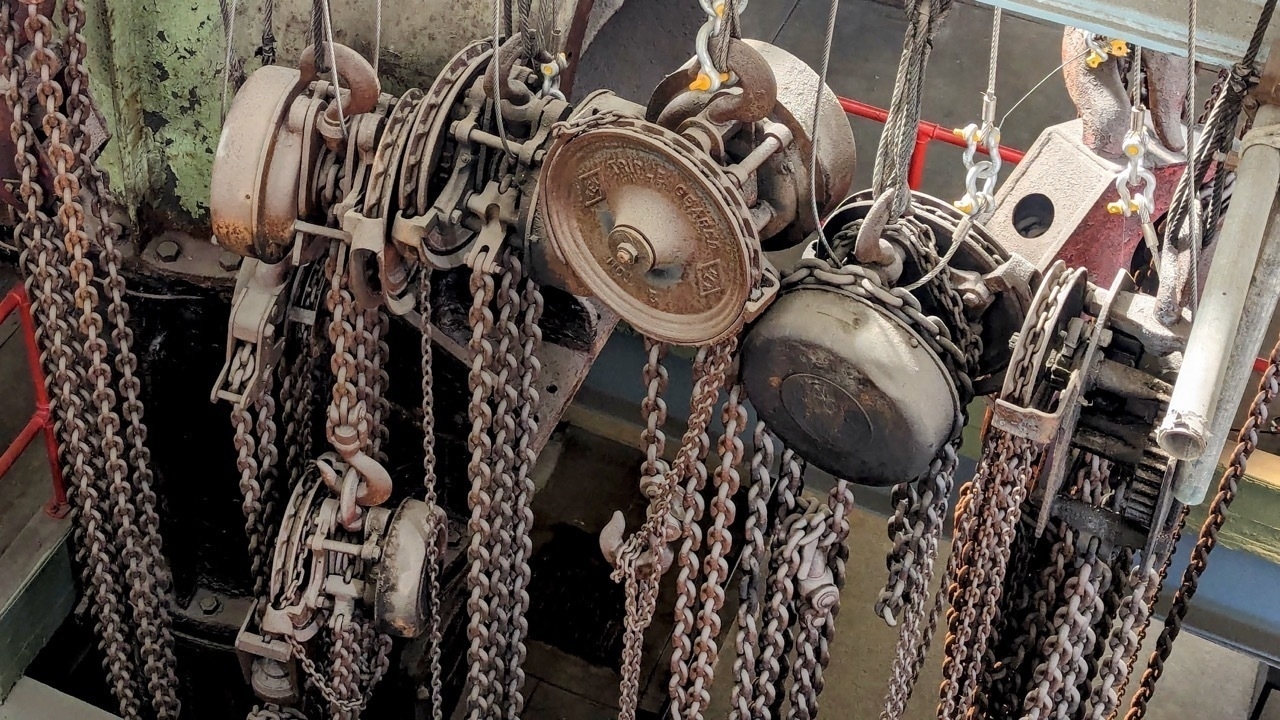“You get what the algorithm gives you. This is both a meagre blessing and a wicked curse.”
- writingslowly.com
#indieweb #blogging
Open, free and poetic
The Web is 34 years old! Following on from Plenty of ways to write online, here are some really practical resources to help you create your own presence online :
Keeping the Web free, open and poetic.
Old hands will probably find a few useful tips here too.
Oh, and here’s another great big list of useful personal website stuff. Actually, I’m making a note of this for my own ‘going down the rabbit-hole’ purposes:
Resources List for the Personal Web
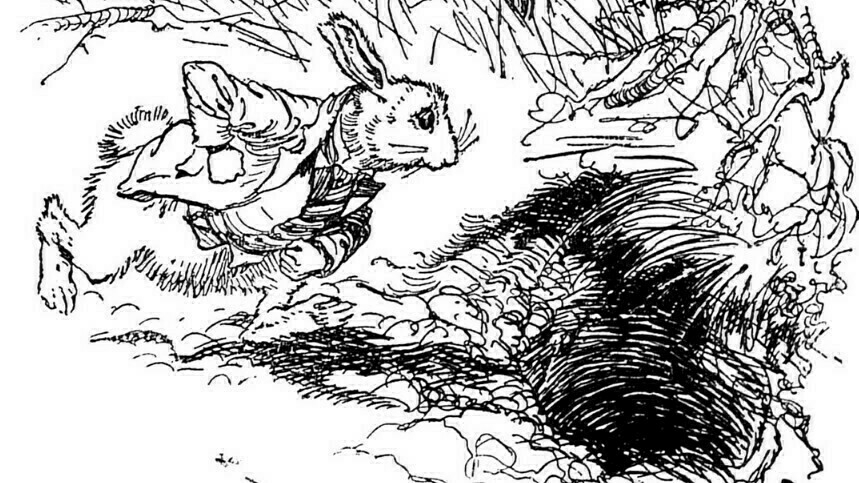
It’s also easier than ever to publish a book. Check out mine: Shu Ha Ri: The Japanese Way of Learning, for Artists and Fighters. And to stay connected, subscribe to the weekly email digest.
*Image source: Public Domain, Wikimedia.
#indieweb #webwriting #worldwideweb #blogging
Plenty of ways to write online
Writing online is more accessible than ever. We can maintain control of our own work by publishing on personal websites while also syndicating content to social media. And as I’ve discovered, it’s also easier than ever to publish a book..
Watch in awe as a fleeting thought becomes a lasting note
I describe in detail how I wrote a blog post and then repurposed it as a permanent note in my Zettelkasten collection. This is the opposite of my usual workflow, where I create publishable writing from my existing notes.
Hot takes on our future with AI
Here are eight ‘hot takes’ on the latest problems, questions and opportunities large language models are giving us. It was going to be just three, but the hot takes are coming thick and fast right now. These links are shared alongside my personal reflections on the impact and future of AI that does your writing for you while cosplaying as a human.
If there's more than one way of seeing, there's more than one way of organising
💬 “Our eyes are built for two perspectives. During the daytime we rely on our cone cells, which depend on lots of light and let us see details. At night the cone cells become useless and we depend on rod cells, which are much more sensitive. The rod cells in our eyes are connected together to detect stray light; as a result they don’t register fine details. If we want to see something in bright light, we focus the image on the center of our retina (the fovea), where the cone cells are tightly packed. To see something at night, we must look off to the side of it, because staring directly at it will focus the object on the useless cone cells in the fovea. The way we see in bright light differs from the way we see in shadows. Neither is the ‘‘right’’ way. We need both.” - Gary Klein (2009) Streetlights and Shadows. Searching for the Keys to Adaptive Decision-making. Cambridge, MA: MIT Press.
On reflection, more can be said along these lines. Another way of looking at this ‘double perspective’ of human vision is to note that it constantly depends on some kind of accommodation between our two eyes working simultaneously and in concert.
So although vision is actually several processes taking place at once, we insist on perceiving it as one unified process. We can’t help it. We’re made to synthesize. But that doesn’t mean it is one process.
The cat is characteristically ecstatic to see that the proofs of the new book have arrived. Not long now before it’s published!
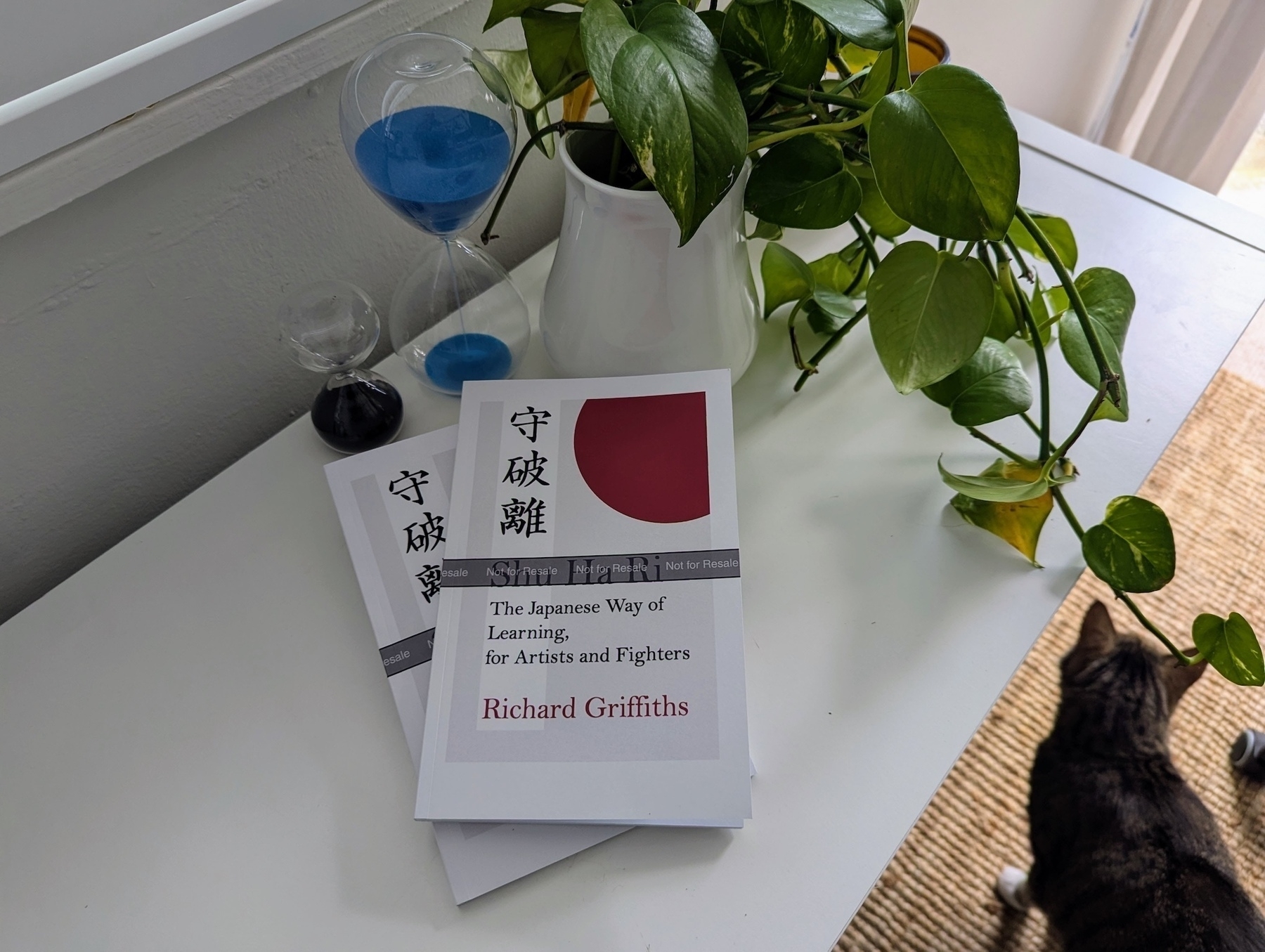
Update: I did it. Shu Ha Ri: The Japanese Way of Learning, for Artists and Fighters is now available. I hope you enjoy it!
#amwriting #booklaunch #comingsoon #nonfiction
💬 On Notebooks and Thinking Better Thoughts
Once we’ve let our thoughts mature for a while, we’ll want to produce something for other people to look at, an artifact.
Exactly so.
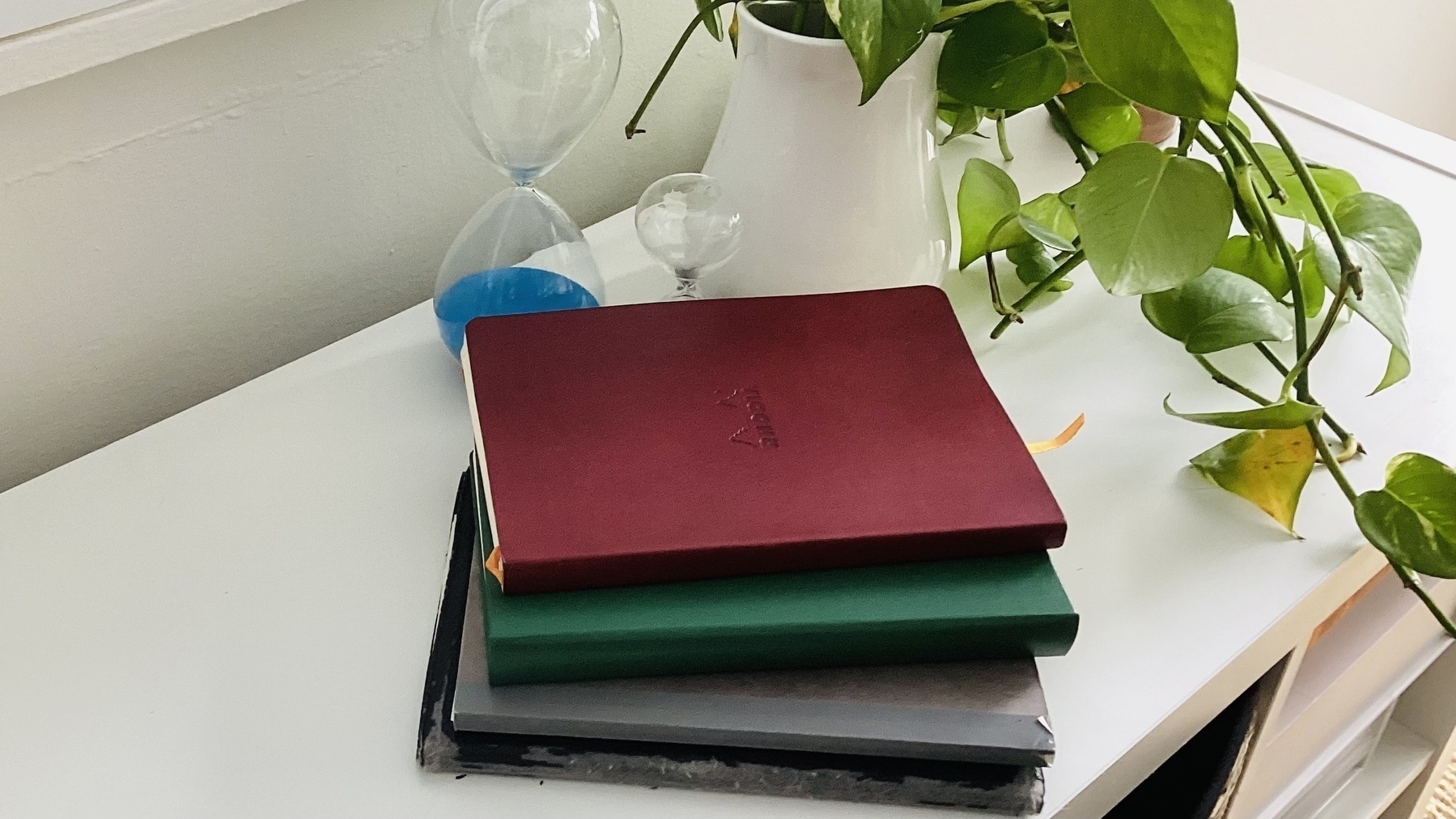
As Alan Jacobs says, reading more books and reading books more - they’re not the same thing.
I designed a book in three and a half hours
A while ago, well, quite a long while ago, I designed a book in three and a half hours. Fun, yes, but it wasn’t very publishable.
Now, years later, I’ve finally got round to updating and redesigning the whole thing.
Yes, I’m still writing slowly but I’m excited to say it will soon be available for sale - so watch this space for more information.
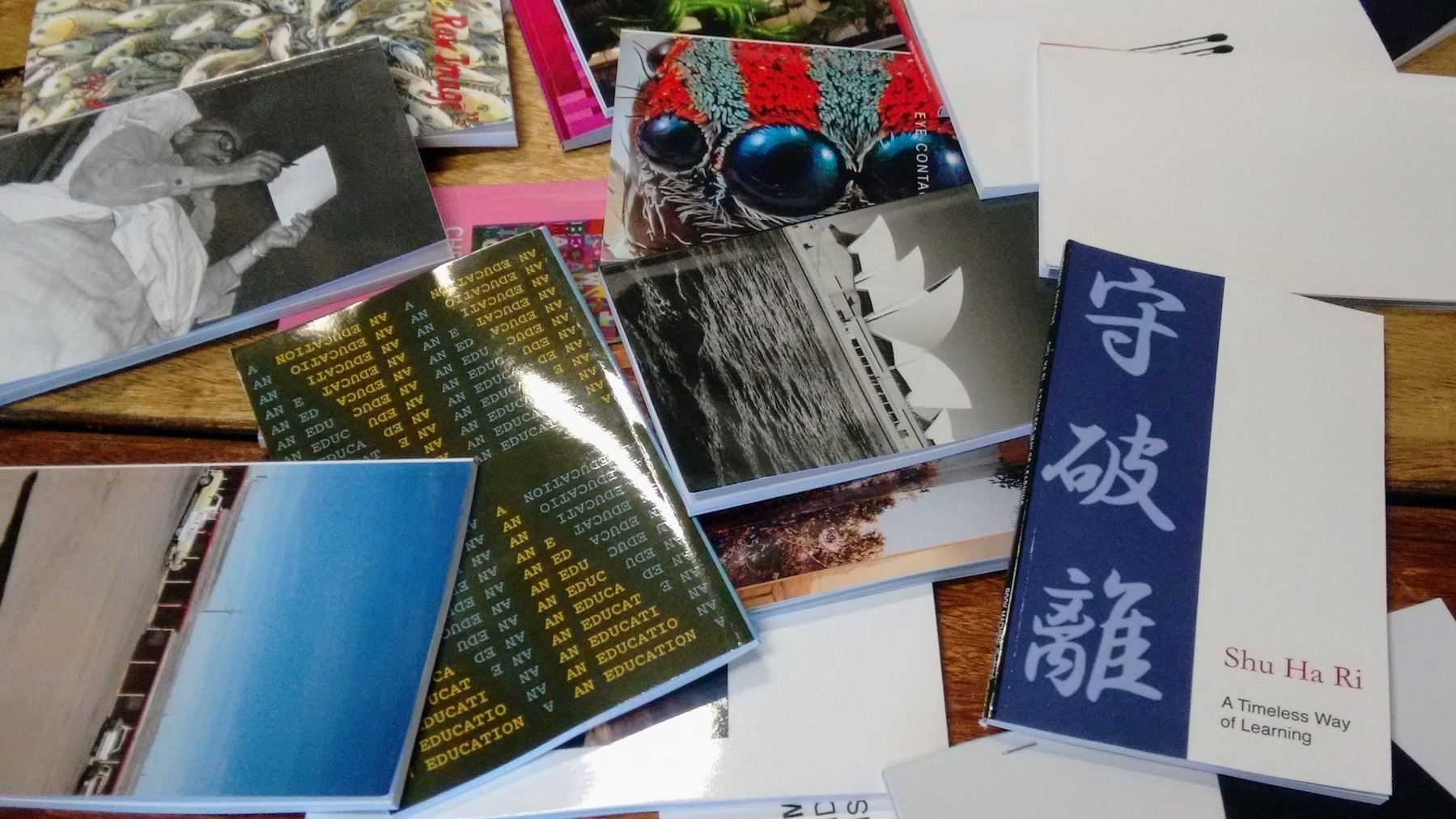
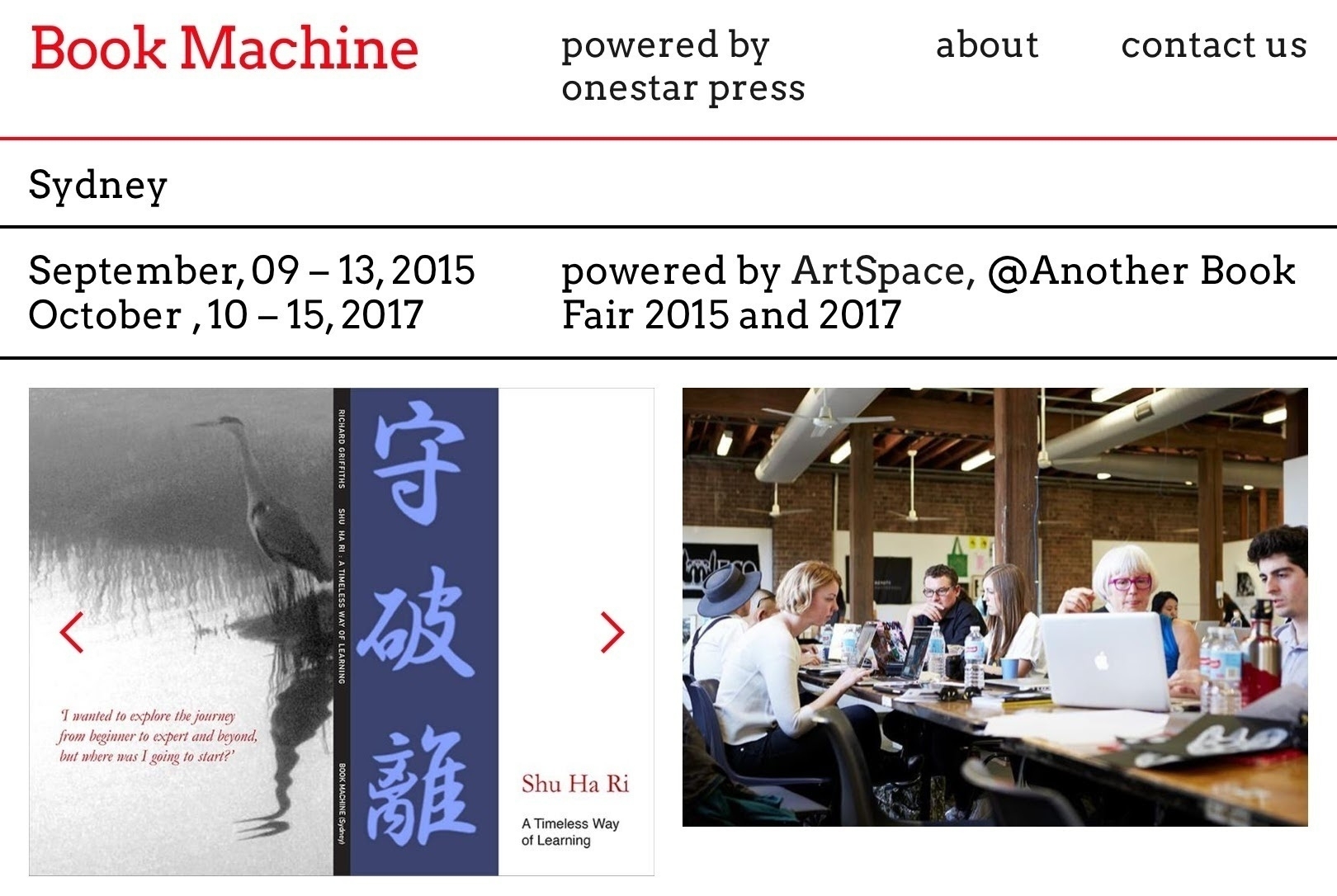
Thinking about Joanna Macy today. In memoriam. I was very influenced by her insistence on both the necessary grief and the vital hope.
I’m unqualified to diagnose the following writers with ADHD but I’ll do it anyway
Yes indeed: confidently diagnosing deceased note-making writers with ADHD, while in possession of no medical qualifications myself, is a temptation I simply cannot resist.
For example I have wondered about:
-
Leonardo da Vinci, whose notes were “a collection without order”;
-
Leibniz, who created a haystack of notes (oh, and calculus);
-
Aby Warburg, who suffered from Verknüpfungszwang - the compulsion to find connections; and
-
Hermann Berger, a Swiss author who wrote a novel about a Zettelkssten (two actually) but didn’t publish it.
-
Then there’s cultural theorist Walter Benjamin, who invented a whole new methodology for his Arcades Project, which he didn’t finish. Wikipedia. He’s certainly a candidate for unqualified posthumous ADHD diagnosis.
As I said, it’s interesting, but for now I’ll stop there.
—-
This post started life as a comment on Reddit. If you’d like more from me, but in a weekly email, why not subscribe right now?
💬 “The things that make us different, in the right context are superpowers. You know, Saul Steinberg said the thing that we respond to in any work of art is the struggle of the artist against his or her limitations.”
- Austin Kleon, interview on The Echoes Podcast, 10 June 2025.
This makes me feel like there’s an awful lot of wrong context lying about. I guess we all need to find a place where we can thrive, or else make it ourselves.
The original quote is from Kurt Vonnegut’s recollection of a conversation with Saul Steinberg.
#creativity #writerslife #deepthoughts #inspiration
Less than keen on having a ‘second brain’:
“I only have one brain, and it’s internal, thankfully. But I’m still very happy with the idea of the ‘extended mind’. My brain remains firmly in my skull, but it nevertheless uses the environment in many different ways to extend its capabilities.”
- The mastery of knowledge is an illusion
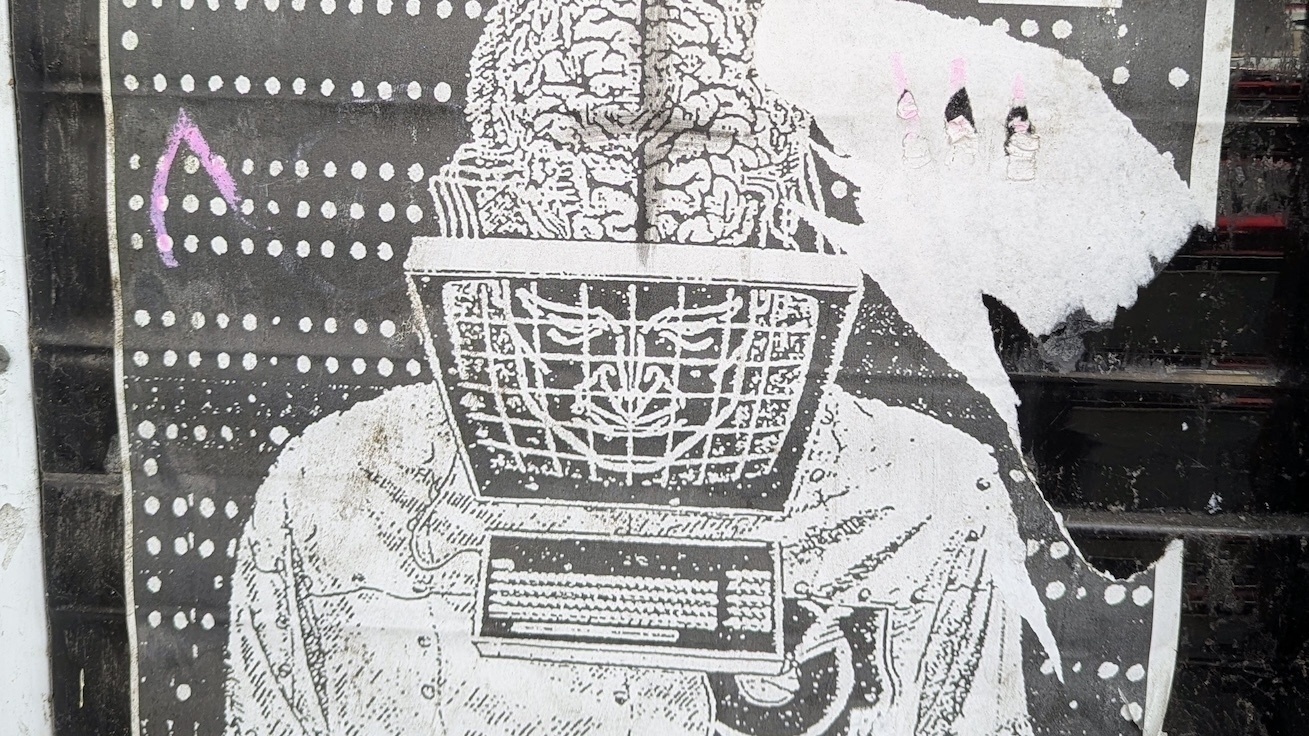
I saw this poster on the street but it’s originally from Cyberpunk Videozine vol.1 (1999).
#pkm #notetaking #zettelkasten
💬 Most attempts at providing computerised tools for writers have thrown out the affordances that previous analogue systems offered, almost without noticing their loss. - writingslowly.com on Ted Nelson’s evolutionary list file.
“Sometimes it’s just nice to know there are other people out there quietly thinking things through.” - writingslowly.com
📷Photo challenge day 30: solitude.
💬"I am the Cat who walks by himself, and all places are alike to me." - Rudyard Kipling.
And there’s more solitude.
#mbjune
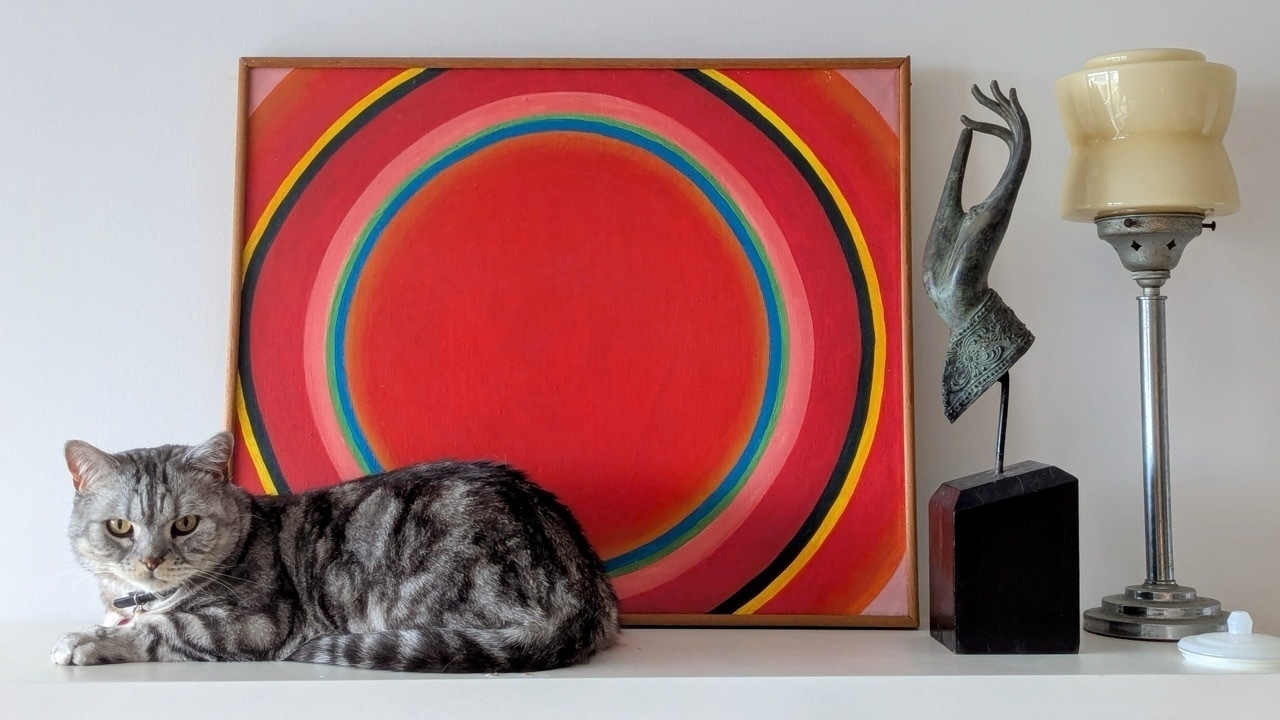
Don't let your note-making system infect you with Archive Fever
The Zettelkasten note-taking system offers a structured approach to organizing thoughts but might induce “archive fever,” which may lead to an obsession with preservation over actual writing. Here’s how to protect yourself.
📷 Photo challenge day 26: bridge.
I’ve used this as a metaphor for writing, but it’s also a real bridge, of which #Sydney has many more than the famous one across the harbour. The image shows the causeway to Bare Island, at the mouth of Kamay, Botany Bay.
#mbjune
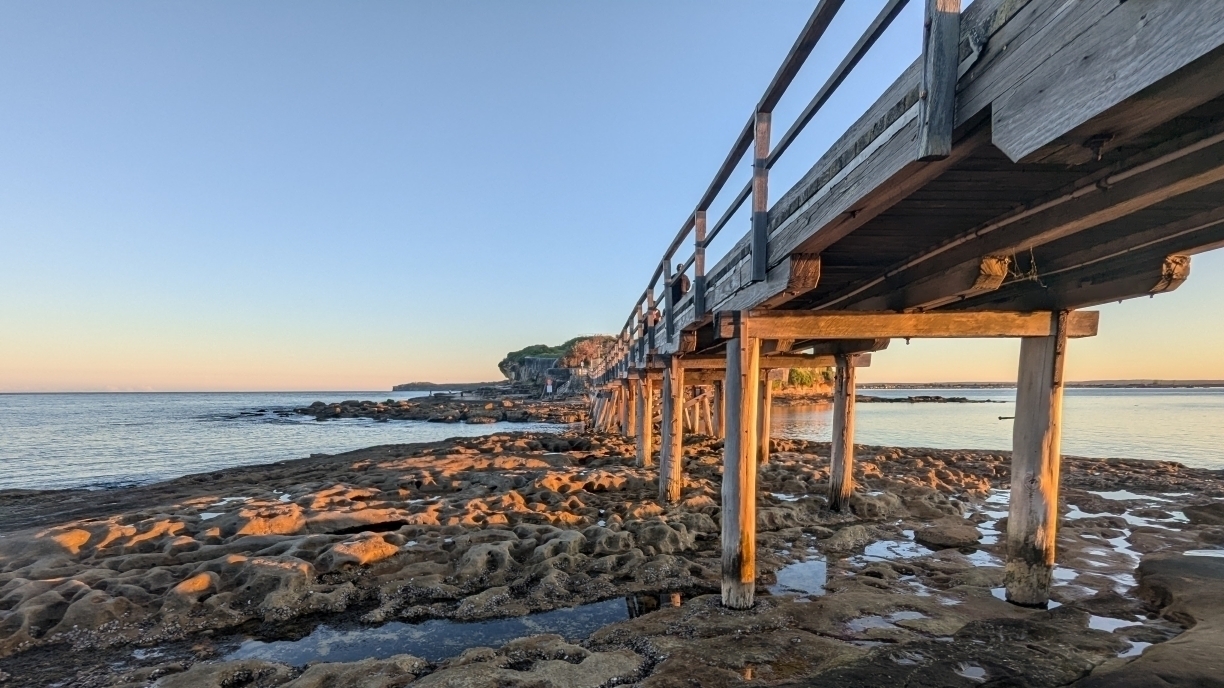
📷 Photo challenge day 29: winding.
It’s well worth taking a look inside White Bay Power Station in #Sydney - as previously seen on day 7 and day 5. Oh, and day 23 last year.
See the whole #mbjune photogrid.
